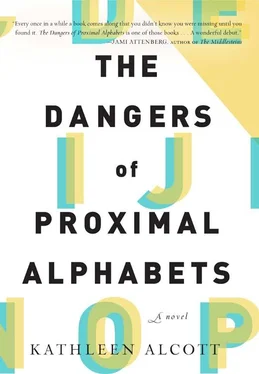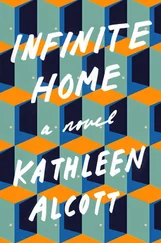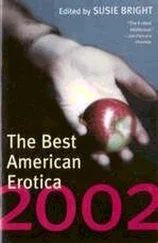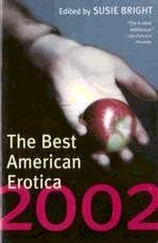I walked half a block behind him. The homeless men still in their sleeping bags smiled and cheered for him—“Diggin’ that hat, brother.” “Woo lordy you got places to be”—but as I passed they scowled. He was lopsided, determined, had every right to be there, and I obviously had none. However dangerous, the parallel tracks he ran on were fascinating, and in my weakest moments, which he came to despise me for, I didn’t have the heart to intervene.
He stopped outside an art supply store and something tilted his head — another string — with the theatrical astonishment of silent movie actors, and I struggled to write the caption that would run across the bottom of the screen. It was barely six, but the store had just opened, for our city ran wild with art students and large canvas bags in constant need of refilling. I didn’t follow him inside; I was ashamed to be there, ashamed not to have stopped him, ashamed to find amusement with this part of him that he so decried. Ten minutes later he was at the register, dumping materials in front of the clerk, who rolled his eyes and scanned them. Wonder of wonders, Jackson located his wallet and handed it across the counter: after thirty seconds of staring him down, the clerk shrugged, opened the wallet, and pulled out sufficient funds. We lived in a city full of crazy people, and this smiling man in a propeller hat and a suit buttoned incorrectly was not breaking any records.
He woke upon exiting the store, looked down at the bags in his hands clenched with a toddler’s unyielding force, and dropped them when his fingers unconsciously slackened. A homeless man he’d passed earlier scuttled by, flashing a peace sign and grin of familiarity. In his wake Jackson saw me where I waited for him on the bench, my whole body tense. He joined me, leaned forward, put one hand on his knee and one, curiously, on his hat. He took it off, flicked the propeller grimly, and tossed it into traffic. When I reached to touch him, his body stiffened.
“I want to sleep so badly,” he said. “To sleep and sleep and sleep, and to wake up in the same place, and have the world where I left it.
“I want,” he continued, with his eyes closed as if imagining it, “to tell those boring stories about the dreams I’ve had to whoever will listen.”
I cleared my throat with an air of solemnity. “I was your grandma but I wasn’t your grandma, and you were in a house that was also a doctor’s office?” I said.
“Yeah,” he answered, “only time was like, something I could touch.”
And we laughed and laughed until he kissed me hard on the mouth.

With his permission, I began to show his pieces to friends who stopped by our apartment, though I was careful to do so only when he wasn’t home, and to put them back in the box where they stayed hidden. I needed to know that I wasn’t imagining how perfectly lonely they were, how deftly they implied whole universes, simply because there was finally a symbol I could hold in my hand of my lover’s other side.
Nathan, a friend of mine in grad school for philosophy, accepted my invitation eagerly as soon as I explained the situation. He was scary-smart, with a slightly broken nose that seemed even more broken when he smiled, and a tendency to overnod while listening. He chose words carefully, rarely swore, and seldom said a bad word about anyone.
“Jesus,” he said and put his hand to his mouth just like I had done.
“Completely asleep?”
I nodded.
After looking at it a full two minutes, he removed the first from the pile and began to move through them quickly, as if he didn’t know where to start, or that the next would surely clarify his feelings toward them. He paused and fixed on one I had a particularly hard time looking at.
It was mostly in charcoal, with some color added in pastel, as if saying Go on. Smear me . It depicted a nude woman with red strings of hair that trailed to her mid-thigh, head cocked and eyes closed in anguish; a hand was reaching out from her mouth, clutching a fistful of the hair that flowed down over her small, uneven breasts, the nipples of which pointed in different directions. The white of her too-thin torso was split open. Appearing grotesquely from her stomach was another hand, a leg kicking across the canvas at an odd, broken angle, and a male face smeared with blood. The face was round, bearded, smirking; the eyes looked straight ahead. The woman’s feet were far too small and she seemed to teeter on the earth’s surface.
Sometime after the last I’d looked at it, Jackson must have labeled it. In the bottom corner, in small milky black letters, it read: I asked you nicely the first time . I imagined him penning it, bitter and grinning darkly, desperate to assert authorship in some small way. Nathan put the pile next to him and clasped his hands in his lap.
“They—” He shook his head. “They have to be seen.”

That night I phoned a friend who owned a small gallery. Though I had planned to seem neutral and merely curious as to whether he might have any interest, my words came across as imploring and desperate. My personal investment was obvious, and I shared too much about the effect the art was having on Jackson as well as myself. Paul listened as I blathered and did not interrupt. When I ran out of breath, he invited me over for dinner the following evening, probably more from concern for my well-being than interest in the pieces. I did not tell Jackson. Since childhood I had been using the eccentricities of his sleep in ways he hadn’t authorized, but this, I hoped, would be different.
Dinner at Paul’s was exquisite: pork chop with roasted peaches, sautéed green beans and mashed potatoes, a strong beer he had brewed himself. It was clear from my voice on the phone, he gently implied, that a large meal cooked with care would do me some good. While we ate he permitted me to speak wildly, about how incredulous Jackson and I had been when it first happened, how it continued even with all the materials hidden, the trip he made to the art store in his sleep. It was clear he was wary. Not of the validity of my story — he had a willingness to believe in the unusual that was endearing and familiar to me — but of art that was, well, schticky .
“It’s maybe a poor comparison,” he said, taking a sip of his beer, “but I’m reminded of that two-year-old who was recently lauded as an abstract expressionist prodigy. It was all over the place for a few months. The parents were both artists. They started giving her more than your average finger paint and printer paper. Canvasses, expensive oils and brushes, the works. And boom — through their connections they get her a show at a gallery, then another. The paintings started selling for ridiculous prices, and there were critics calling her Pollock reborn. And of course her success was propagated by all the controversy, whether her parents had helped or manipulated her, and then the big split between people who wanted to believe the paintings were real and were special, and those who called them phony. And before you knew it, it was more about the argument between the two groups, the believers calling the nonbelievers cynics, than the art itself.”
Paul smiled bashfully and realized he had gotten lost in his excitement. He poured me more beer.
“And then ,” he continued more zealously, “that thing last year? With the elephants painting? Somewhere in Australia, I think. They gave the elephants paintbrushes and filmed it, and the footage cuts between the brush held in the snout and the canvas, and the end result is some real, like, thick Matisse-eque lines in a representation of an elephant. And what a sweet idea, I’ll give ’em that, to think that an elephant would draw what he knew: other elephants. There’s lots of evidence the footage is doctored, but people were willing to pay upward of twenty thousand dollars for an at best mediocre painting, just because it may or not have been done by a zoo animal. Meanwhile artists with vast talent and sincerity are not getting anywhere, and often, more often than I’d like to believe, it’s because they have no scheme. They’re not toddlers or elephants, they don’t, like, coauthor their work with an antique robot, they—”
Читать дальше













